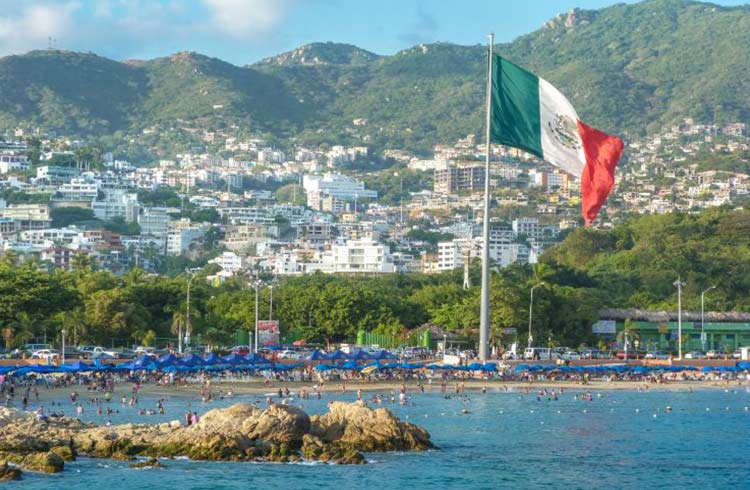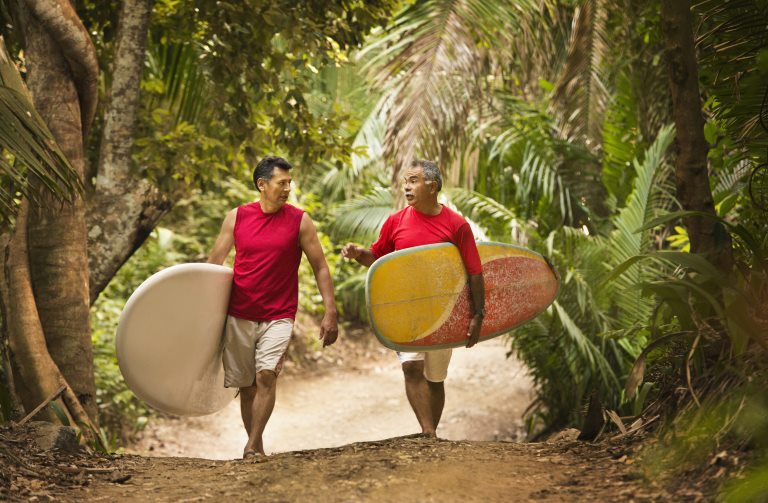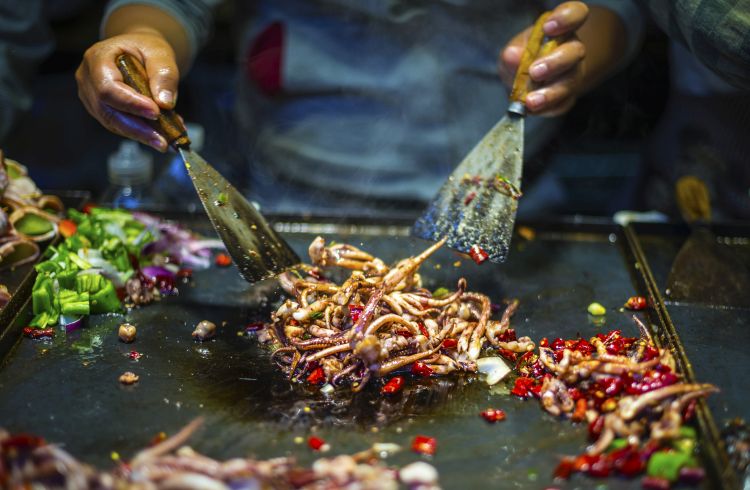Is Mexico Safe? 13 Essential Travel Tips for Visitors
Mexico isn't dangerous if you know what to look out for. From kidnapping, crime and drugs to scams, natural hazards, health and transport safety tips, these are the things you must know before you go.
 Photo © Getty Images/ElOjoTorpe
Photo © Getty Images/ElOjoTorpe
Safety is something many travelers think about before traveling to Mexico – but despite what you might see in the media, thousands of people travel here trouble-free every year.
Before you go, check your government's travel advisory for the most up-to-date information relevant to you.
This is what you need to know to stay safe and out of harm's way in Mexico.
- Street safety
- Petty crime in Mexico
- Violent crime in Mexico
- Scams in Mexico
- Drugs and drug cartel country
- Nightlife safety
- Transport crime
- Express kidnapping
- Women's safety
- LGBTQ+ safety
- Natural hazards
- Travel health
- Video: Tips on how to stay safe in Mexico City
1. Street safety in Mexico
Despite the media headlines telling us that Mexico is rife with crime, the majority of travelers experience one of the world's most vibrant and extraordinary cultures without incident. If you use your common sense, stay aware of your surroundings and keep your valuables out of sight, your trip to Mexico will be uneventful in the best sense of the word
2. Petty crime
Pickpocketing, theft, and snatch-and-grabs can happen in Mexico, particularly in crowded areas such as markets, plazas, parks and transport hubs – Benito Juárez International Airport is one such hotspot.
Pickpockets often work in teams, aiming to distract you while they fleece you of your phone, wallet, purse, or bag. Be aware of who is around you and where you are.
On a day out, don't take anything more than you need for the day and secure your valuables in a safe at your accommodation. If there is no safe available, divide your money up and secrete it away in different places.
If dining out, don't leave your bag over the back of the chair or on the table. Keep it between your feet or on your lap, with the strap around your wrist or leg. Don't leave your wallet, purse or phone on the table.
Should you experience petty crime, report it to your embassy and the police, though, in the latter case, with the sad proviso that you would be likely wasting your time.
3. Violent crime
Most of the time, visitors to Mexico won't experience anything more than petty crime. While the country has a notably high murder rate (back in the tens, the border city of Ciudad Juárez held the distinction of being “the murder capital of the world”), the killings are chiefly the result of turf wars between drug cartels.
If you are threatened for your money and other valuables, don't resist or fight back. The assailant may be armed and won't hesitate to use the weapon.
Physical and sexual assaults have been reported in many locations in Mexico. Avoid wandering alone at night, particularly in poorly lit areas and near beaches. Avoid traveling alone among ruins, and don't hike solo in remote areas, such as the Copper Canyon.
4. Scams in Mexico
Fake taxis, fake cops, airport scams, watered-down drinks, car rental damage scams and the good old foreign exchange switch.
These are just some of the scams that can test any traveler in Mexico and, in some cases, drain your holiday funds. Most locals aren’t out to bilk you, but with a little care and by being aware of who is around you and what is going on, you can avoid becoming a con artist’s next victim.
5. Drugs and drug cartel country
Unfortunately, there’s no ignoring that Mexico has a reputation for drug-related crime, and it doesn’t restrict itself to the mean streets of the cartel-run states of Sinaloa, Guerrero, Colima and Michoacán. It goes where the money is, and that includes tourist spots such as Cabo San Lucas, Cancun and the Mayan Riviera, Puerto Vallarta and Playa del Carmen.
Most travelers report trouble-free trips, but some have found themselves in the wrong place at the wrong time or did not follow government safety warnings and advisories. In the case of the Copper Canyon, the popular hiking spot, in the absence of a reputable local guide, wrong turns are all too easy to make and have proved fatal.
6. Nightlife safety in Mexico
Mexicans throw a great party. From sunset to sunrise, whether you are at a bar, in a club or enjoying a nighttime festival, it’s important to look after yourself, your fellow travelers and your belongings. Drink spiking can occur, which places you at risk of assault and theft. So, watch your drinks and drink in moderation so you can get back to your accommodation safely.
7. Transport crime
If you’re renting a car, don’t drive overnight, and stick to toll roads during the day; otherwise, use first-class coach services between cities as illegal roadblocks and highway robberies are becoming predictable in states such as Guerrero, Michoacán, Oaxaca, Chiapas and along the US border.
Pickpockets are common on city buses, so use car-sharing and ride-hailing apps. Travelers also need to take personal safety precautions and secure their valuables around transport hubs.
8. Express kidnapping in Mexico
Express kidnapping is a growing issue in Latin America, not just Mexico. Never flag down an apparently licensed taxi in the street. The vehicle might have been borrowed or stolen by a criminal who, once you have climbed inside, will make demands for money and take you to the nearest ATM to withdraw cash. The driver may take your valuables, too, or take you hostage until your family or friends make a ransom payment.
Normally, these encounters end with a trip to the cash machine. Either way, it’s vital that you don’t resist. Money and valuables can be replaced – you can’t.
9. Women's safety in Mexico
While most locals are friendly, there are some who have a machismo attitude towards women. Solo women travelers may experience harassment as a result. Dressing modestly, especially in rural locations, can help avoid unwanted attention. Ask locals about the safe places to go when in town and if you’re unsure about exploring by yourself, take a tour. It’s also a great way to meet other fellow travelers. Avoid traveling at night.
10. Is Mexico safe for LGBTQ+ travelers?
Mexico is welcoming more LGBTQ+ travelers each year, but the Catholic Church continues to exert a conservative influence, so discretion is usually advised in areas that don’t come recommended by gay friends. Large pockets of Acapulco, Puerto Vallarta, Cancun, Playa del Carmen, Mérida and Mexico City are very LGBTG+-friendly. And let’s not forget that parts of Mexico have been gender-queer since pre-colonial times.
11. Natural hazards
Every so often, Mother Nature decides to challenge Mexico with volcanoes, earthquakes, hurricanes, intense heat, poisonous plants, venomous reptiles and spiders (rattlers, coral snake, black widow) and predatory big cats (puma, jaguar). But the difficulties we face aren’t always so dramatic – many people drown each year at popular beach resorts due to a combination of dehydration and rip currents. If throwing yourself on the mercies of the natural world is your thing, there are many ways you can stay safe.
12. Travel health
Split by the Tropic of Cancer, Mexico has both tropical and temperate climates, which are home to a variety of mosquito-borne diseases such as dengue fever, malaria, the Zika virus and chikungunya. The country also has great hiking spots, some of which are thousands of feet above sea level, posing the risk of altitude sickness. Throw in a dose of “Montezuma’s Revenge” and staying healthy while traveling in Mexico can throw down the gauntlet to even the most intrepid traveler.
13. Video: Tips on how to stay safe in Mexico City
Watch as Patrick Abboud speaks to a drug dealer, a police officer and locals at the market, to find out just how safe Mexico City is for travelers.
Related articles
Simple and flexible travel insurance
You can buy at home or while traveling, and claim online from anywhere in the world. With 150+ adventure activities covered and 24/7 emergency assistance.
Get a quote


No Comments